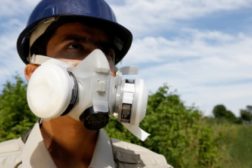Home » protection
Articles Tagged with ''protection''
Youngstown flame resistant Mechanics Hybrid glove offers the dexterity you need along with important safety features you can't be without
Retain Ability to Grasp and Hold Onto Tools, Parts and More While Keeping Hands Safe from Abrasions, Cuts and Burns
December 4, 2012
Become a Leader in Safety Culture
Build your knowledge with ISHN, covering key safety, health and industrial hygiene news, products, and trends.
JOIN TODAYCopyright ©2024. All Rights Reserved BNP Media.
Design, CMS, Hosting & Web Development :: ePublishing




